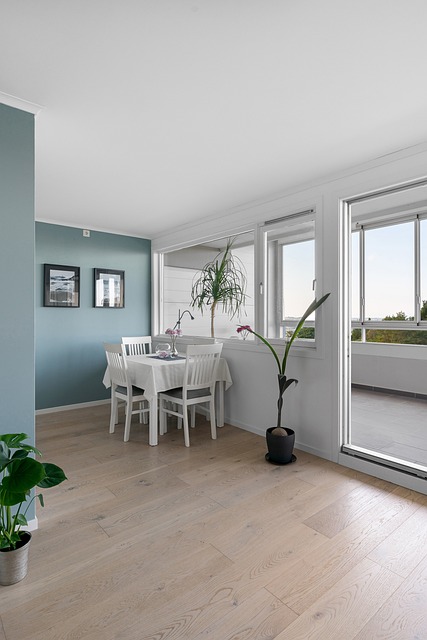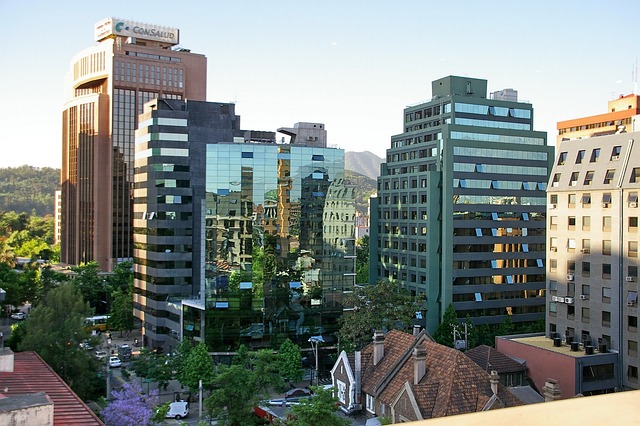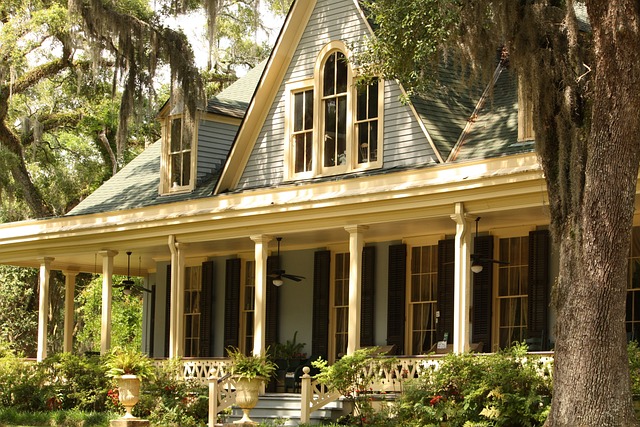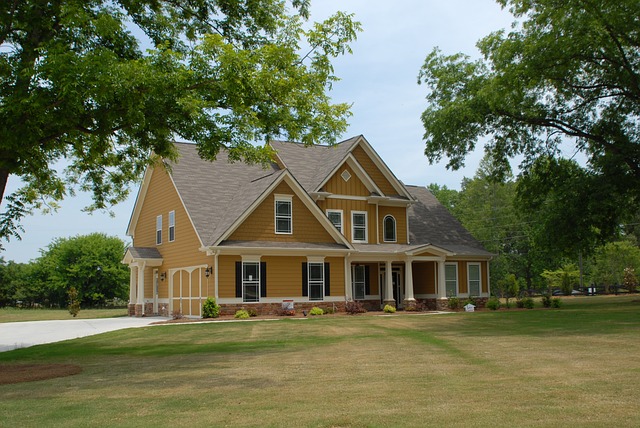2023 has seen a surge in interest for Executive Condominiums (ECs) under the Housing & Development Board (HDB) framework due to their blend of affordability and high-quality living, making them an attractive option for both families transitioning from public to private housing and investors looking for growth opportunities. ECs are unique in that they transition from a minimum occupation period (MOP) of five years to full privatization after ten years, offering flexibility to investors. The completion of new projects and the development of mature estates are expected to enhance the appeal of ECs, particularly in areas with high rental yields and convenient access to amenities, transportation, and growth-oriented regions. For those interested in the Singapore real estate market, considering an investment in an EC HDB could be a smart move, given the government's commitment to adapting policies to meet housing needs and the robust market dynamics that favor both living and investment purposes.
Exploring the lucrative realm of property investment, this article delves into the strategic acquisition of Executive Condominiums (ECs) offered by the HDB in Singapore. For investors eyeing robust growth and rental opportunities, ECs present a compelling choice. This comprehensive guide navigates through the specifics of ECs, highlighting their unique position between public and private housing, and the potential they offer for capital appreciation and lucrative yields. From grasping the nuances of EC eligibility to understanding the financial aspects of purchasing one, this article is a valuable resource for discerning investors. Join us as we explore top HDB developments with high rental yield, examine location influences on property value, and provide insights into the resale market dynamics. Additionally, we’ll guide you through tailoring your EC to maximize tenant appeal and demystify the legalities surrounding ownership and resale restrictions. With expert analysis on future market trends, investors will be equipped with the knowledge to make informed decisions in Singapore’s competitive real estate landscape.
- Understanding Executive Condominiums (ECs) and HDB: A Primer for Investors
- The Rise of ECs as a Smart Investment Choice in Singapore
- Top Executive Condominiums HDB Developments with High Rental Yield Potential
- Location Matters: Strategic Areas for Executive Condominiums with Strong Capital Appreciation
- Financing Your EC Investment: A Guide to CPF and Bank Loan Options
- The Resale Market: Insights into Buying an Established Executive Condo
- Tailored Living: Customizing Your EC to Attract Tenants
- Navigating the Legalities: Ownership and Resale Restrictions for Executive Condominiums HDB
- Future Projections: The Outlook for Executive Condominiums in Singapore's Real Estate Market
Understanding Executive Condominiums (ECs) and HDB: A Primer for Investors

Executive Condominiums (ECs) in Singapore represent a unique segment of the property market that caters to both upgrading couples and property investors, offering a hybrid between public and private housing. These are specifically designed for families who wish to upgrade from their Housing & Development Board (HDB) flats but do not necessarily meet the income ceilings for private condominiums. As an investor considering ECs, it’s crucial to understand the distinct features and benefits they offer. Unlike traditional resale HDB flats, ECs allow for greater liquidity as they can be sold on the open market to both singles and families once they have fulfilled the minimum occupation period (MOP). This flexibility makes them an attractive investment option. Furthermore, ECs are 99-year leasehold properties, which means they offer a long lease duration, similar to private condominiums, but at a more affordable entry point. Understanding the intricacies of EC eligibility and the MOP is essential for investors who aim to capitalize on their investment potential. The transition from an HDB flat to an EC is a step towards diversifying one’s property portfolio within Singapore’s structured housing framework, which can yield promising returns due to the growing demand for such properties among middle-income families. Investors should delve into the specifics of ECs and how they align with their investment goals, considering the unique advantages they present in terms of location, amenities, and market demand.
The Rise of ECs as a Smart Investment Choice in Singapore

Executive Condominiums (ECs) have emerged as a savvy investment choice within the vibrant property landscape of Singapore, particularly for investors eyeing long-term capital appreciation and flexible living options. These hybrid properties offer the luxury and facilities of a condo while allowing owners to enjoy the benefits of living close to HDB estates, which cater to a diverse demographic including young families and professionals. The unique positioning of ECs between public and private housing has made them an attractive proposition for investors who benefit from their potential for price growth due to their unique structure, where they revert to regular condominium status after a set period.
The allure of ECs lies in their eligibility criteria, which are less stringent than those for private condos, making them more accessible. Investors have capitalized on the 99-year leasehold tenure, which, while common for public housing, is a rarity among private properties. This feature, combined with Singapore’s strategic urban planning and limited land space, has propelled ECs as a lucrative investment. Furthermore, the government’s efforts to introduce new EC projects in mature estates, along with various grants and schemes for first-time homeowners, have further bolstered their popularity. As such, the rise of Executive Condominium HDBs represents a smart investment choice for those looking to capitalize on Singapore’s dynamic real estate market.
Top Executive Condominiums HDB Developments with High Rental Yield Potential

Investing in Executive Condominium HDB developments can be a lucrative venture, particularly for those eyeing high rental yields. These hybrid properties offer a unique proposition to both owners and tenants, blending the benefits of a private condo with the affordability of a public housing option. For investors seeking top-tier Executive Condominium HDBs with strong rental yield potential, it’s essential to consider developments that are well-connected to transportation hubs and are situated in mature estates or areas undergoing rapid development. Such locations often attract tenants due to their convenience and the availability of amenities, thereby driving up rental demand and yields. For instance, projects like Parc Canberra and The Visionaire have garnered attention for their strategic positions and the potential they hold for investors looking at long-term capital appreciation coupled with healthy rental returns. When evaluating these investment opportunities, it’s crucial to analyze market trends, understand the demographic profile of the area, and keep an eye on government policies that could influence supply and demand dynamics in the Executive Condominium HDB market. Investors who carefully select their properties based on these criteria are more likely to achieve their financial goals through steady rental yields from their Executive Condominium HDB investments.
Location Matters: Strategic Areas for Executive Condominiums with Strong Capital Appreciation

When considering an investment in an Executive Condominium (EC) under the HDB umbrella, location is a pivotal factor that can significantly influence capital appreciation over time. Strategic areas not only offer prime living spaces but also benefit from infrastructure and developmental projects that can enhance property values. ECs situated near key transportation hubs, such as MRT stations, or in close proximity to commercial centres and business districts, tend to appreciate more rapidly due to their convenience and the growing demand for homes in well-connected locations.
In Singapore, the mix of public and private housing within EC estates provides a unique proposition for investors. These condominiums are designed with the dual intention of offering quality living for families while being accessible to those looking to upgrade from HDB flats. Investors often target mature estates like Sengkang, Tampines, and Punggol, which have established amenities and services. These areas also benefit from Government Master Plans that promise further improvements in infrastructure and connectivity, adding another layer of potential value for investors in the long term.
Financing Your EC Investment: A Guide to CPF and Bank Loan Options

When considering an investment in an Executive Condominium (EC) under the HDB umbrella, understanding the financing options available is crucial to maximizing your investment potential and ensuring compliance with housing policies. Prospective investors have two primary avenues for funding their EC purchase: CPF (Central Provident Fund) savings and bank loans. CPF is a versatile option that allows for the utilization of one’s own or a family member’s savings to finance the purchase. The CPF Ordinary Account (OA) and CPF Savings Account (SA) can be tapped for this purpose, subject to the prevailing housing grants and CPF withdrawal limits. For instance, first-time applicants may use their CPF OA savings to pay the entire price or a portion of it, which can be an attractive option due to the interest-free nature of the funds.
In parallel with CPF savings, bank loans are another financing tool for EC investors. These loans come with competitive interest rates and various repayment schemes tailored to meet diverse financial situations. Prospective buyers should evaluate their financial capacity, including income stability and existing financial commitments, before proceeding with a bank loan application. It’s advisable to compare offers from multiple banks to find the most favorable terms, including interest rate types, tenure options, and additional benefits such as cashback or legal subsidies. By carefully considering both CPF and bank loan options, investors can strategically finance their EC investment in an HDB, ensuring a sound financial approach to this significant real estate endeavor.
The Resale Market: Insights into Buying an Established Executive Condo

When considering an investment in an Executive Condominium (EC) within the Housing & Development Board (HDB) realm, understanding the resale market is paramount. Prospective investors often find that established ECs offer a unique blend of affordability and growth potential, making them an attractive option for both living and investment purposes. The resale market for ECs provides a glimpse into the longevity and stability of such properties. Unlike new EC launches, resale ECs come with a history of appreciation, which can be a strong indicator of their future value. Investors looking to purchase an established EC in the resale market should pay close attention to factors such as the location, the condition of the property, and the surrounding amenities. A well-positioned EC in a mature estate often enjoys better rental yield prospects due to its desirability among tenants who seek convenience and connectivity. Additionally, understanding the varying regulations governing the transition of an EC from the initial 10-year minima lease to the qualification for privatization after 5 years, and eventually into private property after 10 years, is crucial for long-term investment strategies. This knowledge ensures that investors are well-equipped to navigate the unique aspects of owning an EC post-resale, ultimately paving the way for a sound and informed investment decision in the HDB executive condominium market.
Tailored Living: Customizing Your EC to Attract Tenants

When considering an investment in an Executive Condominium (EC) under the HDB umbrella, tailored living is a key factor that can significantly enhance its appeal to prospective tenants. Customization of your EC unit not only reflects personal style but also addresses the practical needs of potential renters. By strategically choosing finishes and fixtures that resonate with a broader audience, investors can elevate their property’s marketability. For instance, opting for versatile color schemes and multipurpose furniture can cater to a range of tenant preferences. Additionally, incorporating smart home technology can modernize the living space and offer convenience, which is increasingly sought after in today’s fast-paced society. Such enhancements not only make the EC more attractive but also ensure that it remains relevant in an ever-evolving rental market. Investors looking to maximize their EC’s potential should consider these customization strategies to create a living space that appeals to a wider tenant pool, thereby facilitating easier and potentially more lucrative tenancy arrangements. In the realm of property investment, where first impressions can be pivotal, tailored living within an Executive Condominium HDB unit can be a game-changer for attracting and retaining ideal tenants.
Navigating the Legalities: Ownership and Resale Restrictions for Executive Condominiums HDB

When investing in an Executive Condominium (EC) by the HDB, it’s crucial for investors to familiarize themselves with the unique legalities that govern these properties. Unlike traditional public housing, ECs are designed for couples and families, offering a hybrid model between private condos and HDB flats. Prospective buyers must meet certain eligibility criteria, including income ceilings and occupancy stipulations, to apply for an EC. The initial minimum occupation period (MOP) is five years, during which time owners are not permitted to sell their unit on the open market; they can only be disposed of to eligible Singaporeans or PRs, or to other members of the current flatowners’ family. After satisfying the MOP, ECs can be sold to any buyer, thus becoming a more versatile investment. It’s imperative to understand these resale restrictions as they directly impact an investor’s exit strategy and potential return on investment. Investors should also be aware of the different stages of EC development, from the application for sale of balance flats to the launch of new projects, each with its own set of rules and implications for investors. A thorough understanding of these legalities is essential for making informed decisions when considering an Executive Condominium HDB as part of one’s investment portfolio.
Future Projections: The Outlook for Executive Condominiums in Singapore's Real Estate Market

2023 has seen a resurgence in interest for Executive Condominiums (ECs) under the Housing & Development Board (HDB) scheme, reflecting their status as a popular and affordable housing option for both families and investors. With a track record of providing high-quality living spaces that blend the convenience of condominium living with affordability, ECs have become increasingly attractive to Singaporeans looking to upgrade from public to private housing. Looking ahead, projections indicate a positive outlook for these properties. The anticipated completion of new projects and the continued evolution of mature estates are poised to enhance the desirability of ECs, particularly in areas with good rental yield prospects and proximity to amenities, transportation nodes, and future growth areas. Investors eyeing the Singapore real estate market should consider how these developments could influence the value of Executive Condominium HDB properties, making them a compelling investment opportunity for those looking to diversify their portfolio. As the government continues to adjust policies to meet the housing needs of the population, the dynamic nature of the EC segment suggests a robust future for investors in this niche market.
Investing in an Executive Condominium (EC) HDB presents a unique opportunity within Singapore’s dynamic real estate landscape. With its blend of public and private housing benefits, ECs offer a compelling proposition for those looking to capitalize on both rental yields and property value appreciation. The insights provided throughout this article underscore the strategic advantages of ECs, from their financing options to the diverse locations that cater to various investor profiles. As Singapore continues to evolve, ECs stand out as a robust investment, offering tailored living spaces that attract tenants while navigating the unique legalities associated with these properties. For investors eyeing the resale market or those ready to personalize their unit for optimal tenant appeal, the wealth of information and analysis presented here serves as a valuable guide. Looking ahead, the positive projections for ECs in Singapore’s real estate market reinforce their status as a prudent investment choice for the discerning property investor.



